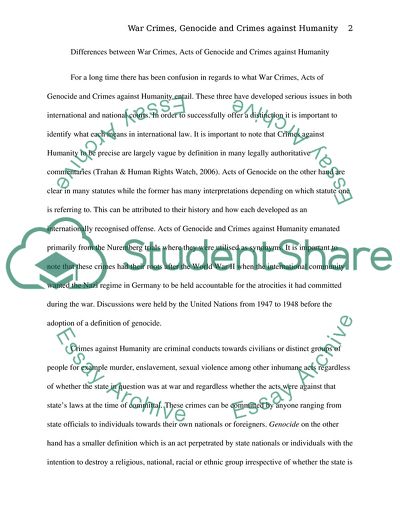Cite this document
(Differences between War Crimes, Genocide and Crimes against Humanity Report, n.d.)
Differences between War Crimes, Genocide and Crimes against Humanity Report. https://studentshare.org/law/1750592-what-is-the-difference-between-war-crimes-acts-of-genocide-and-crimes-against-humanity
Differences between War Crimes, Genocide and Crimes against Humanity Report. https://studentshare.org/law/1750592-what-is-the-difference-between-war-crimes-acts-of-genocide-and-crimes-against-humanity
(Differences Between War Crimes, Genocide and Crimes Against Humanity Report)
Differences Between War Crimes, Genocide and Crimes Against Humanity Report. https://studentshare.org/law/1750592-what-is-the-difference-between-war-crimes-acts-of-genocide-and-crimes-against-humanity.
Differences Between War Crimes, Genocide and Crimes Against Humanity Report. https://studentshare.org/law/1750592-what-is-the-difference-between-war-crimes-acts-of-genocide-and-crimes-against-humanity.
“Differences Between War Crimes, Genocide and Crimes Against Humanity Report”. https://studentshare.org/law/1750592-what-is-the-difference-between-war-crimes-acts-of-genocide-and-crimes-against-humanity.


